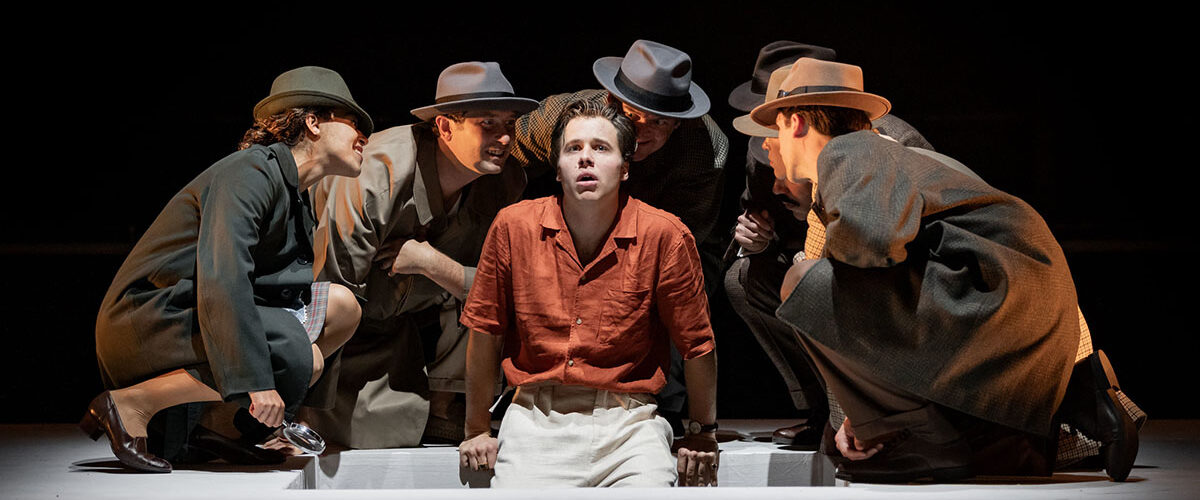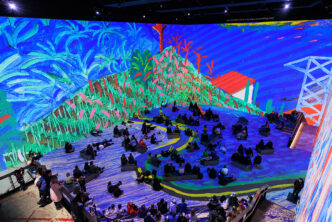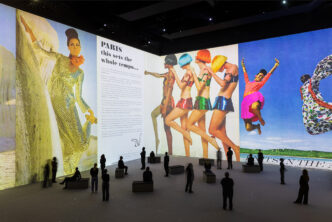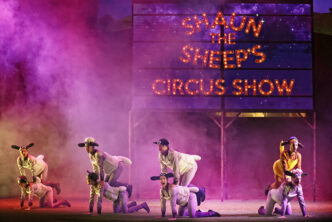It’s debatable whether the world needs another Tom Ripley adaptation. The part of the amoral, art loving con man and psychopath has been played by several respected actors including Alain Delon (Plein Soleil), Dennis Hopper (The American Friend), Matt Damon (The Talented Mr Ripley), and John Malkovich (Ripley’s Game). There was a BBC radio series with Ian Hart, and more recently Andrew Scott played Ripley in a Netflix series. Saltburn was a Generation Z spin on Patricia Highsmith’s most famous character, whilst there’s obvious Ripley DNA in the new David Duchovny series, Malice.
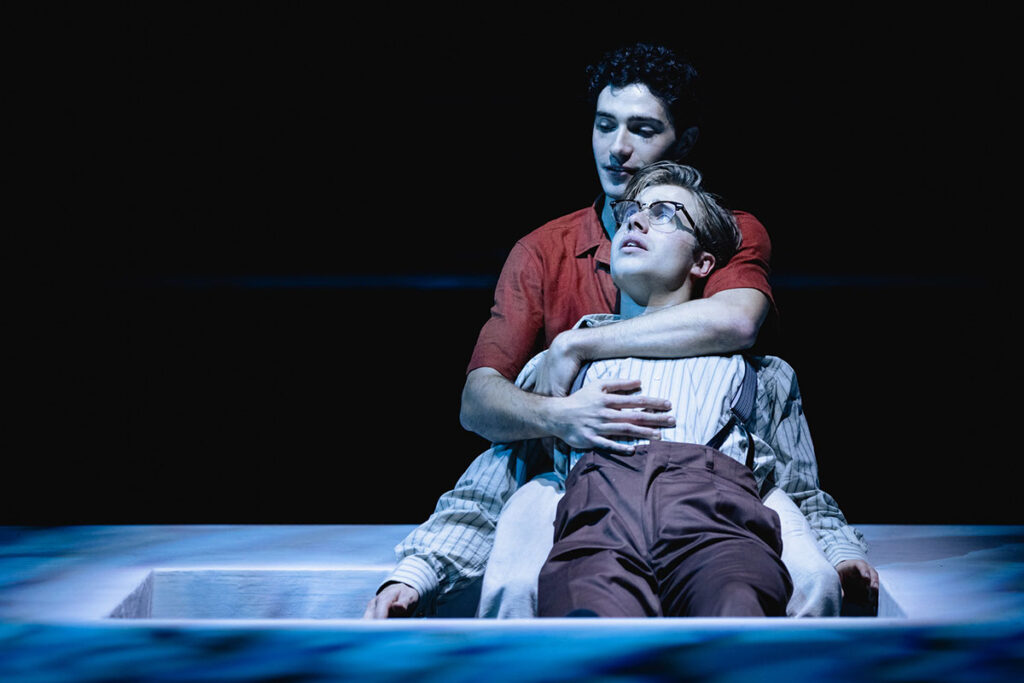
To his credit, writer and director Mark Leipacher, of the Faction Ensemble, has taken a more cerebral approach in his adaptation of the first novel in the series, (Highsmith wrote five in total). Leipacher has built a complex and detailed psychology for Ripley (hewing closely to the criteria for antisocial personality disorder), using tricks that include flashbacks, monologues, and multiple versions of the same scene, often taking place purely in Ripley’s head. It’s a successful conceit that creates the sense of a fragile personality grasping for an identity.
Through a random social connection, shipping magnate Herbert Greenleaf approaches Tom Ripley in a bar, with a proposition. Dickie, the tycoon’s son, is shirking his responsibilities by living like a playboy on the Amalfi Coast. Convinced that Dickie and Tom were once friends, Herbert offers to pay Tom’s passage to Italy, if Tom can persuade Greenleaf Junior to return home. One of Tom’s talents is compulsive lying: yes, he’s a friend of Dickie’s, and yes he will accept. Once in Italy, Tom inveigles himself into the life of Dickie, and fiancée Marge. For a while, this triangle functions perfectly well. But Tom’s neediness and repressed homosexuality begin to exasperate Dickie. Can Tom take a hint that this new friendship is over as soon as it’s begun? Probably not – he craves Dickie’s lifestyle a little too much, happily resorting to extreme measures to impersonate him.
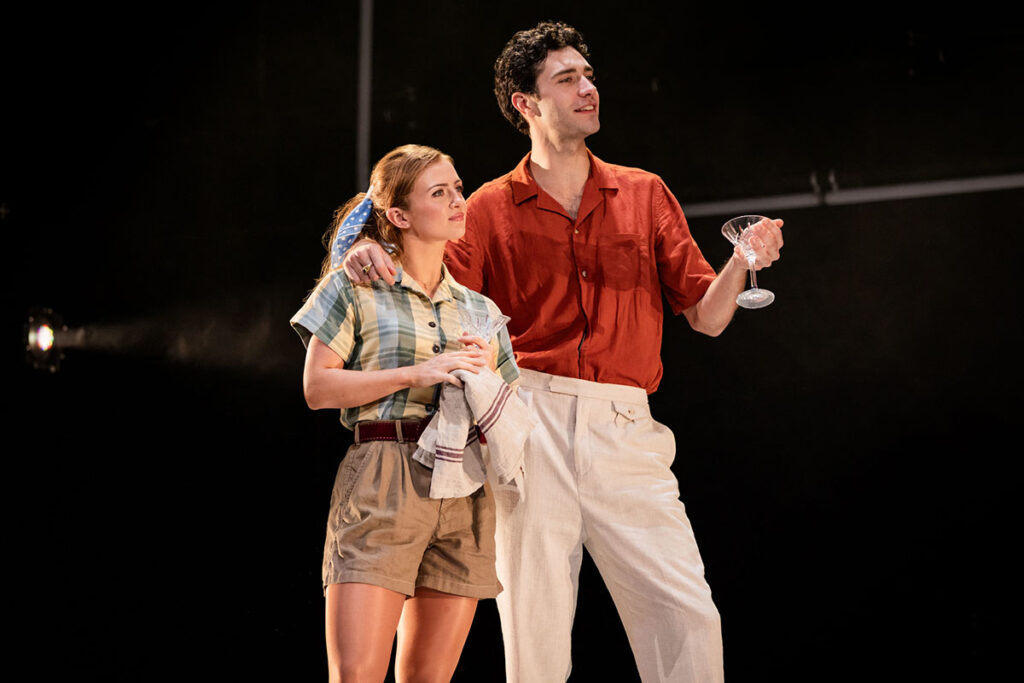
For the most part, The Talented Mr.Ripley is an exhilarating affair. The bedrock is Holly Pigott’s multifaceted set, which allows the cast to pop up and disappear often at unexpected moments. It’s particularly effective during the swimming scenes which pivot around an offshore raft (location for the first murder). Neon tubes – care of lighting designer Zeynep Kepekli – line the stage walls, and come into their own during a steamy love making scene between Dickie and Marge, complete with quiet to heavy breathing. The co dependent triangle is reinforced through Tom’s physical involvement (another fantasy of course). Movement directors never get enough credit but Sarita Piotrowski’s contribution accounts for 40 per cent of this production’s success. There’s fluidity to the movement, the cast constantly in motion.
In Anthony Minghella’s film version, Jude Law disappeared halfway through. Here, Dickie is forever present, mirror to a man who has stolen his identity (the pair wear identical clothes in Act 2). In the role of Greenleaf Junior, Bruce Herbelin-Earle is rather fabulous, oozing self assurance as a character who knows the world is always going to be his oyster. Maisie Smith will be familiar to many due to her role as Tiffany Butcher in EastEnders. As Marge, she’s perfectly fine but Leipacher has marginalized the character somewhat, making her mostly a reactive presence. It’s a misstep that she accepts Dickie’s cruel abandonment without more of a fight. In the dual role of Herbert and Inspector Roverini, veteran character Christopher Bianchi is terrific, a much needed connection with the real world of action and consequences.
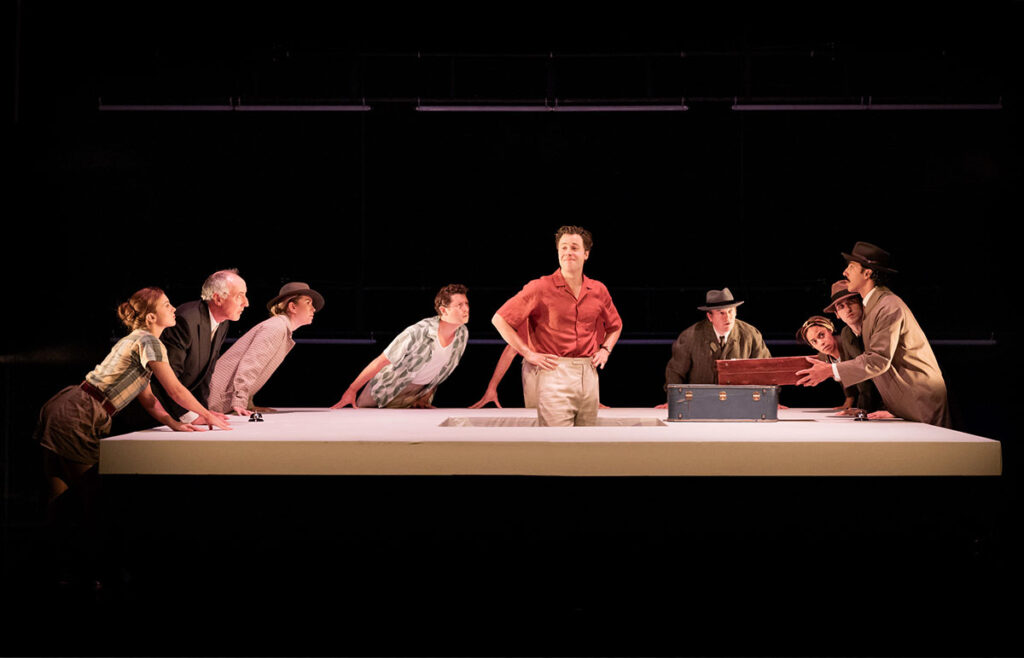
Tom Ripley is one of those characters most actors would kill to play, and Ed McVey grabs it with both hands. McVey is now fairly established due to his performance in The Crown (as Prince William) but he performs an astonishing hire wire act here, in a dazzling and nuanced performance. This is possibly the most neurotic interpretation of the character there’s been, with Ripley’s inferiority and paranoia to the fore. ‘I hate the feeling of people looking down on me.’ At times, he’s almost pathetic (he can’t even swim). It’s because Ripley is a social outsider that we root for him – even when he’s forging signatures and murdering people.

On opening night, the running time was two hours and twenty minutes. There’s plenty of extraneous stuff which could be removed without impacting the narrative. We don’t need an Act 1 scene before the Italy trip, where Tom chats to his New York flat mate: Likewise endless details about Tom’s European detours (Paris! Corfu!).
Highsmith mostly wrote thrillers. Leipacher the director hits most of his targets but stumbles in generating suspense. A few more shocks would have elevated this production to the five star category (the absence of any atmosphere music is a missed opportunity).
Some of these issues can be ironed out as this production continues to tour. The Talented Mr. Ripley shows there’s still much to explore in the world of this great literary psychopath.
The Talented Mr Ripley is at Lowry, Salford from 17-22 November 2025.

